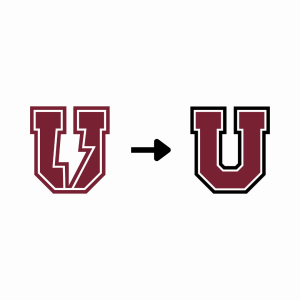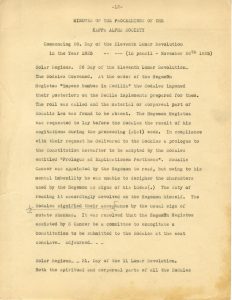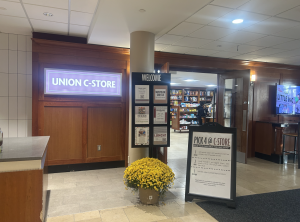What do they mean by “mumble rap?”: a study in culture
January 23, 2019
Magazines, blogs and talk shows covering the music industry subject the newest generation of rappers to criticism on many grounds, but one commentary that seems to appear more than any other is the idea that these young artists are mumbling, making their lyrics unintelligible.
Music media isn’t wrong. Rappers today do employ a different style than the community’s veterans. Coined “mumble rap,” the trend has become a loosely characterized subgenre of hip-hop, spread through online streaming services like SoundCloud.
Prominent mumble rap artists include but are not limited to: Lil Pump, 21 Savage, Lil Peep, Trippie Redd, Ski Mask the Slump God, Future and the Migos.
Interestingly, rappers are not placed under the umbrella of mumble rap just because they mumble, though some of them might. They’re rather put there because of the alleged lack of lyricism that is contrary to the traditional characteristics of hip-hop.
To be called a mumble rap artist is to be insulted by the rap community, though artists have started to embrace the title.
Many people, particularly “old-heads” — hip-hop fans nostalgic for the golden age of hip hop — believe mumble rap is deteriorating the quality of hip hop and isn’t “real” rap.
It’s true that hip-hop today is different compared to the hip-hop of the 1990’s, but the idea that the genre must remain the same is closed-minded, and incongruous to the ever-changing scope of music.
Mumble rap is not debasing hip hop.
It is a different side of the genre that champions the production of the track as well as the persona of the artist, as opposed to the former focus on lyrics only.
In a way, mumble rap reflects the changing nature of music — as hip hop surpasses rock and country as the most popular genre, it will become increasingly complex in its forms.
One product of the changing landscape is Metro Boomin, a St. Louis-born producer with extensive ties to the trap and mumble rap circles. With his distinctive hard-hitting beats, it’s hard not to dance when a song of his comes on.
His catchy tags, “If young Metro don’t trust you” and “Metro Boomin wants some more…” get listeners more intrigued with the song than the artist rapping over the beat.
This is to say that we are living in the era of producers, and mumble rap is just one manifestation, as it promotes the beat of a song more than anything. That isn’t as bad as people make it out to be.
Producers have always had a strong presence in hip hop music because beat selection is essential. However, they haven’t historically had as much praise as producers today.
An article in Complex Magazine, one of the top sources for hip hop news, wrote: “The chart placement marks a high point in a trend that has been on the way for a while now: producers are moving from behind the scenes into the spotlight.”
This suggests that the mumble rap generation is helping to give credit to producers who should have always been receiving recognition. This stands in contrast to hip hop in the 1990’s, where the average listener was more into big superstar rappers like Tupac and Biggie.
Beats have always had an integral part of hip hop and it is refreshing to see a genre acknowledging the importance of the producer, which will bring the general public to acknowledge them as well.
This is not to say that in mumble rap the artist and their lyricism are completely lost. Artists like Ski Mask the Slump God have amazing wordplay, forceful punchlines, and flows that are unique in their own right.
Other rappers like 21 Savage have stories to tell about the hard life of being a gangster, similar to the subject material of older hip hop songs.
Therefore, the aspects of “real” rap aren’t totally lost in mumble rap.
However, mumble rap is more so about the artists’ voice and persona. And voice isn’t just figurative — Kodak Black, for example, has a very original delivery that makes people bob their heads as soon as a word is spoken.
There is something particularly pleasing about the sound of certain people rapping. It grabs you, regardless of the lyrics at hand, which is good for Kodak Black because it is definitely hard to understand him sometimes.
Lil Uzi Vert’s and Young Thug’s out-there personas carry them as artists.
Mumble rap champions these aspects fully, where other genres may only value them secretly.
I challenge people to look more broadly onto music rather than referring to what predecessors have done.
Music is always transforming and evolving. Hip hop is not any different.
There are artists in the newer generations of rappers like Kendrick Lamar, J.Cole and Joyner Lucas who are the “rappers’ rapper.” They please more traditional hip hop fans with their lyrical dexterity.
However, mumble rap artists aren’t that and aren’t trying to be that. They have impeccable beat selections, funky personas and distinctive voices.
They are in a league of their own, reminding us that there is far more to music than just lyrics.






